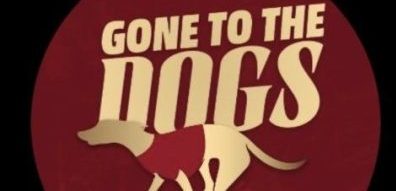We are at the semi final stage of the 76th Two Year Old Produce Stakes, the last remaining of a group of races that played a significant role in the furtherance of British breeding.
For those unfamiliar with the Produce concept, it is quite simple and almost as old as the sport itself. For a very small cost, a breeder could pay to enter a litter of pups in an event taking place two years later.
There were supplemental entry fees along the way, though these were now for individuals, rather than litters. Only pups entered at each stage could contest the event, though there was an opportunity to pay an additional late entry fee.
At one stage, there were at least nine Produce Stakes (as far as we can tell) all operating at the same time. The current Swindon version was originally the ‘Western’ and was run at Bristol; others were staged at Catford, Leeds, Monmore, Powerfall, Romford and Stamford Bridge.
Brighton’s Regency was originally the Regency Produce Stakes (1948-1965) and the biggest of all was Wimbledon’s. In the mid 1930s it was worth £426 to the winner (roughly £32,250 today) and even by the mid 1960s the first prize was £1,265 (roughly £27,350).
The Western Produce Stakes was only open to greyhounds ‘bred in the 13 West Country counties’, while all the others, bar Stamford Bridge, were also open to Irish breds.
In 1961, GRA announced a new Two Year Old British Bred Produce Stakes in addition to the regular National Breeders Produce Stakes, which was held at White City.
At its peak, the Wimbledon Produce Stakes attracted almost 500 litter entries each year and a spin-off event was staged, for three year olds, the Champion Stakes over 700 yards. The Wimbledon Produced Stakes was discontinued in 1974 with management blaming ‘changing times and heavy administrative expenses’.
In reality, the decline in the events – at least initially – wasn’t primarily down to costs or even a decline in British breeding. It was due to the uncompetitive nature of the majority of the heats. Basically, punters didn’t like them. (Signet Otis was 1-12 on Sunday).
In later years though, the decline in home breds was a key factor in the ending of the British Breeders Forum Produce Stakes which began at Harringay in 1983 and ended at Hall Green in 2012.
There were roughly 1,100 British bred litters per year when it started (412 were entered in the Produce Stakes) and just over 400 litters born in total when it finished.
The Swindon event normally attracts around 100 litters per year (roughly half of those bred), but the effects of Covid in the qualifying year (2020), saw the numbers roughly halved.
A few snippets associated with the Produce Stakes.
- Entries close for the first ever Produce Stakes closed on December 31 1932. Among the entries are five litters by Mick The Miller.
- The Irish were regular visitors for the Wimbledon Produce Stakes often with around 15-20 entries for the first round. Although the event started in 1935, it was 1950 before the first Irish winner was crowned, Newtown Defender. However the Jack McAllister owned Northern King landed the event on his way to the 1956 English Derby.
- Breeder Fred Trevellion was invited to the BBC Studios at Alexandra Palace after three of his Trevs runners take 1-2-3 in the 1946 Stamford Bridge Produce Stakes. But the breeder of the first two Catford Produce Stakes winner, Mr W R Hartley, closes his kennels after being unable to feed his pups due to rationing.
- The 1948 Bristol Two Year Old Produce Stakes winner is future English Derby winner Narrogar Ann who leads home litter brothers Narrogar Dusty and Narrogar Tommy. As a dam, Ann went on to throw Derby winner Endless Gossip.
- Back in 1950, 16 month old Swizzling Simbo (the clue might be in the title), was backed down from 10-1 to 7-4 in the heats of the Catford Produce Stakes and found 29 lengths improvement. He went to start favourite for the final but broke a toe and finished second. The event had attracted 220 first round entries.
- The 1951 Wimbledon Produce Stakes only attracted 15 entries despite a first prize of £665. (equiv to £24,300). Meanwhile the same year’s Stamford Bridge Produce Stakes winner Moreton Ann, went on to win the Oaks and Puppy Oaks. At 11 months old, she had finished runner-up at Crufts.
- Vet Paddy Sweeney won the Midland Produce Stakes Wheatfield Countess on his way to landing the 1960 English Oaks.
- Kensington Perfection won the 1953 Bristol, Brighton,Catford and Stamford Bridge Produce Stakes netting him £2,027 for his Bicester breeder. That would be the equivalent or roughly £62K today. In 1963 the Viv Pateman bred Tripway won the Wimbledon, Stamford Bridge and Brighton Regency Produce Stakes.
- Four littermates: Highwoods: Stephen, Spot, Sampson and Sovereign won all four heats of the 1956 Produce Stakes. All made the final which was won by ‘Stephen’.
- Wimbledon receive 810 first round acceptances for their 1966 Produce Stakes. They will have to be whittled down to 60 for the first round.
- In 1968 Breeder/trainer Jim Morgan landed the 1-2-3 in the Bristol Produce Stakes with three members of a Crazy Society/Hiver Swanky litter.
- 1974 The last Wimbledon Produce Stakes was won by Paddy McEvoy’s locally trained Daemonic Gambol who then won the Bristol equivalent.
- In 1983 Dilys Steels was so confident in the ability of Glatton Grange that she paid the £200 late entry fee (roughly £750 today) to enable the Ken Linzell trained brindle to contest the event. He duly picked up the £7,000 first prize.
- In 1989 only 21 runners went into the draw for the first round of the Bristol Two Year Old Produce Stakes which was cut to five heats.
- Having gone beneath the 28.82 Wembley track record in his qualifying trial (28.61), Phantom Flash went to traps at 1-14f for the first round of the 1990 Produce Stakes which he won by 10 lengths in a new track record of 28.79.
- In 1990, Westmead Move produced a litter by Daleys Gold in January, and another by his son Airmount Grand eight months later. Two years later, two from each litter reached the Produce Stakes winner at Wembley won by Westmead Spirit, from half brother Next Move. Other Savva Produce Stakes winners: Westmead Merlin, Staplers Jo, Westmead Hawk, Westmead Joe, Dilemmas Flight. The most dominant ‘Westmead year’ though was the 2008 final at Swindon where he had the first four home, headed by Westmead Osprey,plus the sixth placed Westmead Oriole.
- Keith Howard sent out the 1-2-3 & 6th in the ’99 Swindon Produce, headed by Hedsor Rock.
- Hes Nobodys Fool, the first ever graded winner for double Derby winning sire Toms The Best, went on to win the 2000 Produce Stakes at Hall Green.
- In 2005, trainer Peter Bailey goes head to head with Nick Savva in the Swindon Produce Stakes with three runners each. Bailey won it with Lowkey.
- Derby winning breeder Dave Firmager won the first of his Swindon Produce Stakes in 2009 with Romeo Expert, then again with Romeo Metro in 2011 and Fabulous Expert in 2015. He also won the BGBF Produce at Nottingham with Romeo Recruit in 2012.
- The most recent litter tricast came iin 2019 when King Sheeran led home King Cash and King Dylan (Eden The Kid-Skate On) with Queen Cher (Eden The Kid-Shaws Dilemma) in fourth. The following year the event was won by Queen Jessiej (Leamaneigh Turbo-Skate On).
Although there is rightly great interest in the five Magical Bale/Forest Natalee litter, Paul Walton and Dave Puddy are enjoying a huge buzz with their three littermates from the Pat C Sabbath/Sleepy Genie litter.
The dam was a prolific open race winner at Crayford and this first litter of seven pups have all reached the track.
Paul said: “I bought Sleepy Genie for very small money and she was terrrific for me winning the Rose Bowl and a string of opens. Jonathan Kay used to refer to her as ‘The Queen of Crayford’. Of the seven pups, six have all made top grade and the seventh was injured while he was on his way to the top.
“I’ve been involved in greyhounds all my life but nothing tops this. Without being flash, I could afford £30-£40K dogs but it has never interested me. Dave and I are best mates, we own the pups between us and split the costs; the money doesn’t come into it. Having these three in the Produce Stakes semi final is living the dream.”
Brothers Al Capone and Valentino are drawn as neighbours in the first semi final but Paul is particularly sweet on sister Shani El Bolsa in what looks like the toughest of the three qualifiers.
He said: “There are some fabulous dogs in there, but to be honest, I’ll be gutted if she doesn’t lead. She has a 4.05 sectional, but her last run was hand timed. I am convinced that she would have broken 4.00 and that puts her into the race. She is coming back from a seasonal rest and I think there is plenty more to come.
“I don’t like griping, there are way too many people in this industry who do nothing but talk it down. My only complaint about the competition is, why weren’t there any ante post prices for it? The bookies were having to price up 15 runners for the Champion Hurdle but wouldn’t touch this.
“Look at those three semi finals, they are top class races. It makes no sense.”
The most Regency winner Troy Suzieeq was mated to Good News last week. If all goes to plan, she is due to produce a litter in December. They will be reared by John McQuillan in Co. Antrim, the breeder who produced Brookside Richie and Blonde Snapper to name but two. Suzieeq is a litter sister to Thursday’s PGR St Leger entry Savana Ruinart and marathon star Redzer Renae
Updated 2022 British bred litter . . .















